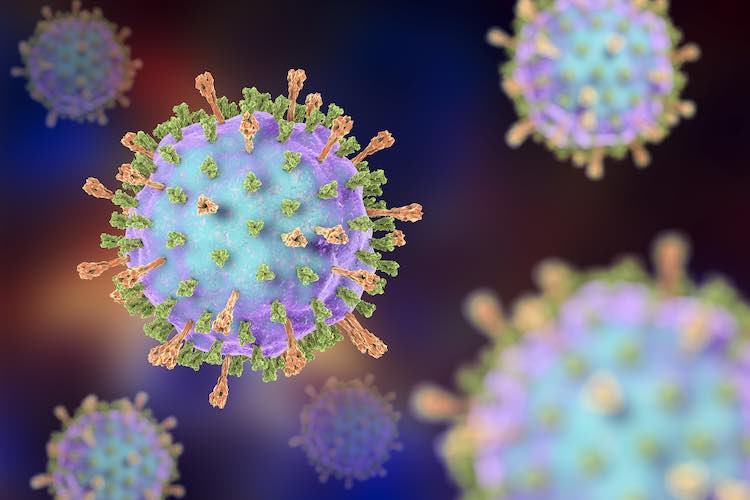Mumps is a highly contagious virus infection that affects the glands that produce saliva, and occasionally other parts of the body.
The virus is spread through saliva or mucus from the infected person. It can be transmitted through kissing, sharing eating utensils, coughing and sneezing, and touching surfaces the infected person has touched with unwashed hands.
Mumps symptoms
Mumps symptoms usually take 12-25 days to appear after infection.
The classic symptoms are pain and swelling of the salivary glands, leading to puffy cheeks and a swollen jaw. This is usually accompanied with a raised temperature and pain on opening the mouth or chewing.
The gland usually affected is the parotid gland which lies in front of and just below the ear. The glands on both sides are usually affected. Occasionally the submandibular glands, lying below the jaw, are also affected.
The infected person will also usually feel tired and have lost their appetite and may have headaches and aching muscles. Some people do not have any symptoms at all.
Who gets mumps?
These days mumps is increasingly rare. In Australia most children are vaccinated against mumps when they are 12 months old (with MMR – the combined measles, mumps and rubella vaccine) and at 18 months of age (with MMRV – the combined measles, mumps, rubella and chickenpox vaccine). However, mumps still occurs and can cause problems, particularly if adolescents and adults catch it.
Tests and diagnosis
Mumps can usually be diagnosed just based on a person’s symptoms. Blood, urine and swab tests can confirm the diagnosis if necessary.
Treatment of mumps
The aim of treatment is to relieve the unpleasant symptoms while the infection runs its natural course, which usually takes about a week to 10 days. Rest and plenty of fluids are important, with a soft diet that doesn’t need chewing. Paracetamol can be taken (as directed by your doctor or pharmacist) for pain and temperature.
People with mumps must stay away from other people for 9 days after the start of the swelling of the salivary glands. This means children with mumps must not go to day care or school until at least 9 days after the start of the swelling.
Complications of mumps
Serious complications from mumps are rare, but mumps can cause problems if the virus gets to some parts of the body. It can affect the testicles in males who’ve been through puberty, causing great pain and swelling (orchitis). Sterility is a feared result but happens rarely, even when both testicles are involved. In females inflammation of the ovaries can cause pain in the lower abdomen. Other rare complications include inflammation of the pancreas (pancreatitis), or brain (meningitis and encephalitis). Deafness can also occur rarely.
Prevention of mumps
Mumps is spread by coughing and sneezing, so infected children should be kept away from others until 9 days after the onset of salivary gland swelling. Children who haven’t had mumps, and were not vaccinated in early childhood, should be given the vaccine before they reach puberty.
Mumps vaccination is part of the routine childhood immunisation schedule in Australia and is free. The first dose is at 12 months of age (with MMR – the combined measles, mumps and rubella vaccine) and the second dose at 18 months of age (with MMRV – the combined measles, mumps, rubella and chickenpox vaccine). Children who were over 18 months at 1 July 2013 will receive their second dose at 4 years of age.
Some adults may not have had 2 doses of mumps-containing vaccines, and should see their doctor about vaccination.

